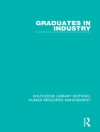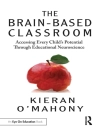While in some cases modernity may dominate ‘traditional’ forms of expression, in others, the modern is embraced as a welcome source of new ideas that can modify ‘tradition’ while still keeping it within its own bounds. Maintaining a strong and distinct cultural identity with the help of modernity helps representatives of that identity cope with the modern world more generally. By contrast, assimilation to a dominant culture marked as modern is clearly associated with not only the loss of a distinct identity, but also its specific forms of cultural expression. This book explores the consequences of the interface between modernity and tradition in selected societies in Taiwan, mainland China and Vietnam. The contributors examine how traditions are themselves exploiting modernity in creative ways, in the interests of their own further cultural developments, and to what extent this approach is likely to help a tradition survive.
Daftar Isi
Preface
James Wilkerson and Robert Parkin
Introduction
James Wilkerson and Robert Parkin
Part I: People’s Republic of China
Chapter 1. The house, the state and change: the modernity of Sichuan Gyalrong Tibetans
Ting-yu Wang
Chapter 2. From kinship to state and back again: lineage and history in a Qiang village
Liu Biyun
Chapter 3. Embroidery speaks: what does Miao embroidery tell us?
Ho Zhaohua
Chapter 4. Tensions between romantic love and marriage: performing ‘Miao cultural individuality’ in an upland Miao love song
Chien Mei-ling
Chapter 5. Modalities of the one-child policy among urban migrants in China
Chang Kuei-min
Chapter 6. The culture of World Cultural Heritage
Eveline Bingaman
Part II: Taiwan and Vietnam
Chapter 7. ‘Amis hip hop’: the bodily expressions of contemporary young Amis in Taiwan
Futuru C. L. Tsai
Chapter 8. Contesting memory: the shifting power of narration in contemporary Paiwan contexts
Li-Ju Hong
Chapter 9. Ethnicity as strategy: Taiwan state policies and the Thao
Yayoi Mitsuda
Chapter 10. On the ‘third morning’: the continuity of life from past to present among the Nung of northern Vietnam
N. Jenny Hsu
Afterword: Performance as a mechanism for social change
James Wilkerson
Tentang Penulis
Robert Parkin is a Departmental Lecturer in Social Anthropology at the University of Oxford. He has also taught at the University of Kent at Canterbury, Oxford Brookes University and the Free University of Berlin. His main thematic interests are in kinship, religion and symbolism, ethnicity, nationalism and regional identity and the history of French anthropology, on all of which he has published extensively.












